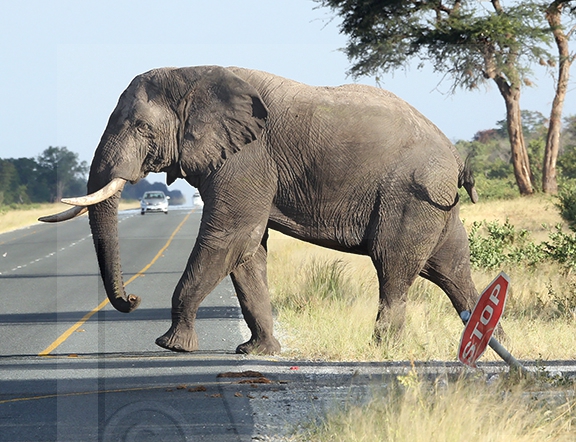Strategy addresses human- wildlife conflict
23 Oct 2025
The Minister of Environment and Tourism, Mr Wynter Mmolotsi says addressing human-wildlife conflict is among priority areas of the National Development Plan (NDP) 12 strategy.
He acknowledged that human-wildlife conflict was one of the major impediments of economic growth and food security within the rural communities, with an average of over 9 000 incidents recorded annually.
Mr Mmolotsi said the government was committed to reducing these incidents by 10 per cent annually during the plan period. Presenting the Tourism and Environment chapter in the draft NDP 12 to Parliament on Wednesday, Mr Mmolotsi said ‘a total of 46 744 human-wildlife conflict incidents were recorded between 2020 and 2025, translating to an average of 9 349 incidents per year.
Mr Mmolotsi said in order to promote a sustainable environment toward economic growth and social wellbeing, plans were underway to review the current compensation rates, construct electricity powered wildlife-proof fences as well as supporting farmers to construct electrified fences around cluster farms.
Additionally, he noted that government was intending to develop a new financing strategy toward compensation for damages caused by wildlife, while also creating an opportunity for other stakeholders to contribute towards conservation.
“A new financing strategy for compensating damage caused by wildlife would be developed and a green fund would be created to attract resources from outside of the government to be used towards conservation and human-wildlife conflict,” he said.
Furthermore, the minister noted that value chain development opportunities would be optimally explored to grow the wildlife economy.He noted that during the plan period, government would also implement the biodiversity financing model to support protected areas.
Mr Mmolotsi said in addition to strengthening anti-poaching, wildlife patrols and community participation, cross-border collaborations would be enhanced to control wildlife trafficking to neighbouring countries.
On other issues, he noted that stakeholder engagements would be intensified focusing on capacity building and compliance on plastic management, which contributed to environmental degradation. “Key stakeholders will continue to be engaged through consultations, capacity building and awareness initiatives to ensure inclusive participation and compliance,” he said.
Mr Mmolotsi also noted that, strategies such as strengthening regulatory framework, multi-sectoral climate change mainstreaming and capacity building and improving weather systems to enhance weather forecasting, early warning and disaster preparedness would be put in place. ENDS
Source : BOPA
Author : Kehumile Moekejo
Location : Gaborone
Event : Parliament
Date : 23 Oct 2025




